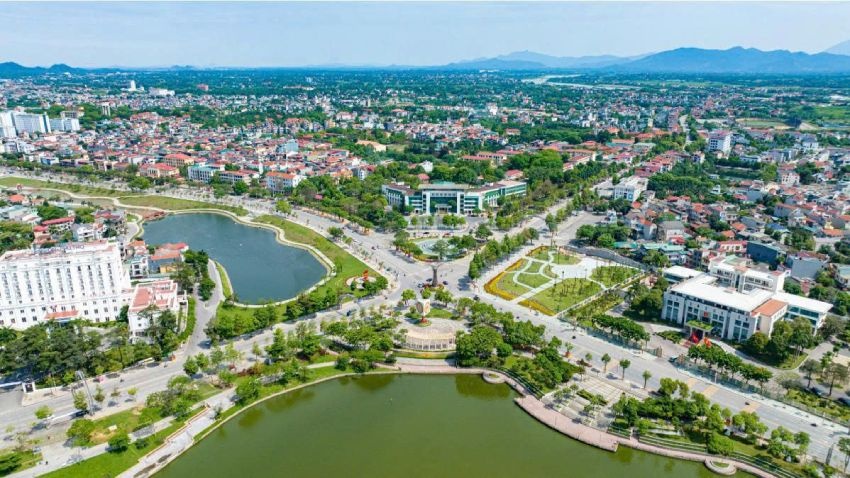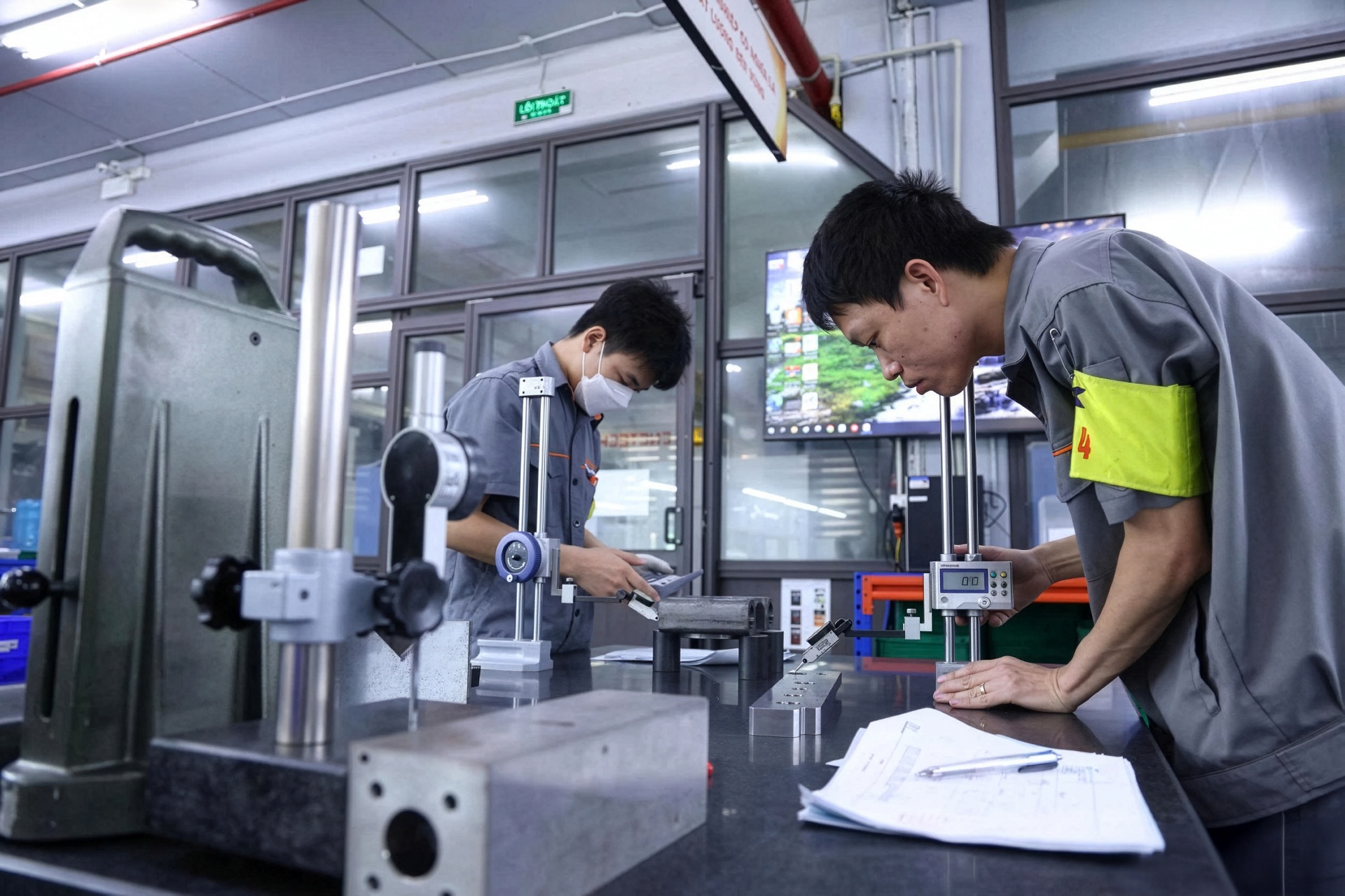Phu Tho in Vietnam's northeast has been implementing a raft of comprehensive measures to promote the green transition and sustainable growth, laying the groundwork for a green, environmentally friendly economy.
Phu Tho Party Committee, People's Council and People's Committee, along with all levels and sectors, have quickly translated the Party and the state's policies into concrete actions, including the National Green Growth Strategy, the net-zero by 2050 commitment, and the Green Transformation Programme.
 |
The province is also prioritising green agriculture, ecotourism, green industry, green urban development, environmental protection, and renewable energy as part of its long-term sustainability goals, helping build a cleaner, greener and more liveable Phu Tho.
From 2022 to 2024, the Provincial Green Index (PGI) showed steady improvement in both scores and rankings, with diverse sub-indices surpassing the national average, most notably provincial leadership in environmental protection and policies supporting environmentally responsible businesses.
Phu Tho has recently approved a plan to improve its PGI by 2030, targeting a top 10 national ranking. Each agency has been assigned specific tasks.
The Department of Agriculture and Environment will lead monitoring and implementation, and advise on the Environmental Protection Scheme for 2026-2030.
The Department of Finance has been tasked with developing policies to attract green investment and promote economic restructuring towards lower emissions.
The provincial Industrial Parks Management Board has been tasked with formulating an industrial eco-park development plan to 2030, stimulating energy-efficient technologies, emission inventories, and greener production practices.
Talking with the press recently, Hoang Long Bien, head of Phu Tho Industrial Parks Management Board, said that green development is the key for the province to attract strategic investors.
He noted, "We clearly understand that our responsibility goes beyond developing synchronised, modern industrial zone infrastructure. It also lies in creating a sustainable investment environment that tightly links economic growth with environmental protection. The management board will continue to accompany businesses at every stage, from site clearance and investment procedures to operational support, so that Phu Tho becomes a destination for tech-intensive and environmentally friendly projects."
Heading towards net-zero target by 2045
Following administrative consolidation, Phu Tho has strengthened its capabilities across multiple dimensions. Its land area, population, and economic scale all rank among the leading localities nationally, placing it among the 10 localities with regional GDP exceeding VND300 trillion ($12 billion).
The consolidation has unlocked vast development potential in terms of geography and natural conditions, creating major opportunities for the province's green-transition strategy.
 |
| Phu Tho prioritises attracting businesses in ICT fields that offer high industrial value with limited emissions. Photo: Phu Tho portal |
In the face of increasingly severe climate change, Phu Tho's unique ecological advantages are providing a strong foundation for the province to pursue its net-zero emissions target, becoming the sustainable green lung of the northern midland and mountainous region and the capital region.
The province's net-zero roadmap consists of four phases, and will focus on institutional groundwork, establishing the Net-Zero Steering Committee, emission mapping, and piloting eco-industrial parks and circular agriculture.
From 2028-2030, the province will scale up green models, pilot a domestic carbon market, raise forest coverage to 47 per cent, expand renewable energy, and develop Viet Tri as the first low-carbon city.
The 2031-2035 period will accelerate the transition, with 50 per cent of industrial facilities adopting eco-circular models, 70 per cent of public transport electrified, and all new urban areas built on circular principles.
By 2040-2045, Phu Tho aims to meet all net-zero criteria and qualify for participation in the international carbon market.
To accelerate its low-carbon transition, Phu Tho will begin rolling out a set of new environmental-financial instruments from 2026.
These include carbon taxation, applied to major emitters to incentivise the adoption of clean technologies; promoting green credit, offering preferential interest rates and supportive policies for circular and renewable projects aimed at long-term sustainable growth; and establishing a provincial-level low-carbon transition fund, which will provide dedicated resources to finance or co-finance green initiatives such as energy efficiency, circular industry, reforestation, and low-carbon agricultural transformation.
Phu Tho will also sign inter-ministerial cooperation agreements with the Ministry of Agriculture and Environment, the Ministry of Industry and Trade, and the Ministry of Science and Technology to harmonise regulatory frameworks and standardise measurement-monitoring-verification tools for emission performance, thereby ensuring strong alignment between provincial initiatives and national objectives.
At the same time, the province is calling for green investment from strategic partners such as Japan, South Korea, and EU in key sectors including high-tech industrial parks, green logistics, circular urban development, and renewable energy production.
The move is expected to mobilise additional financial resources and enhance technological and project management capabilities.
With a comprehensive approach that links awareness to concrete action, the green transition is expected to become a new driver of development, enabling Phu Tho to advance sustainably and prosperously, while strengthening its role as a key growth engine in the northern region.

















































